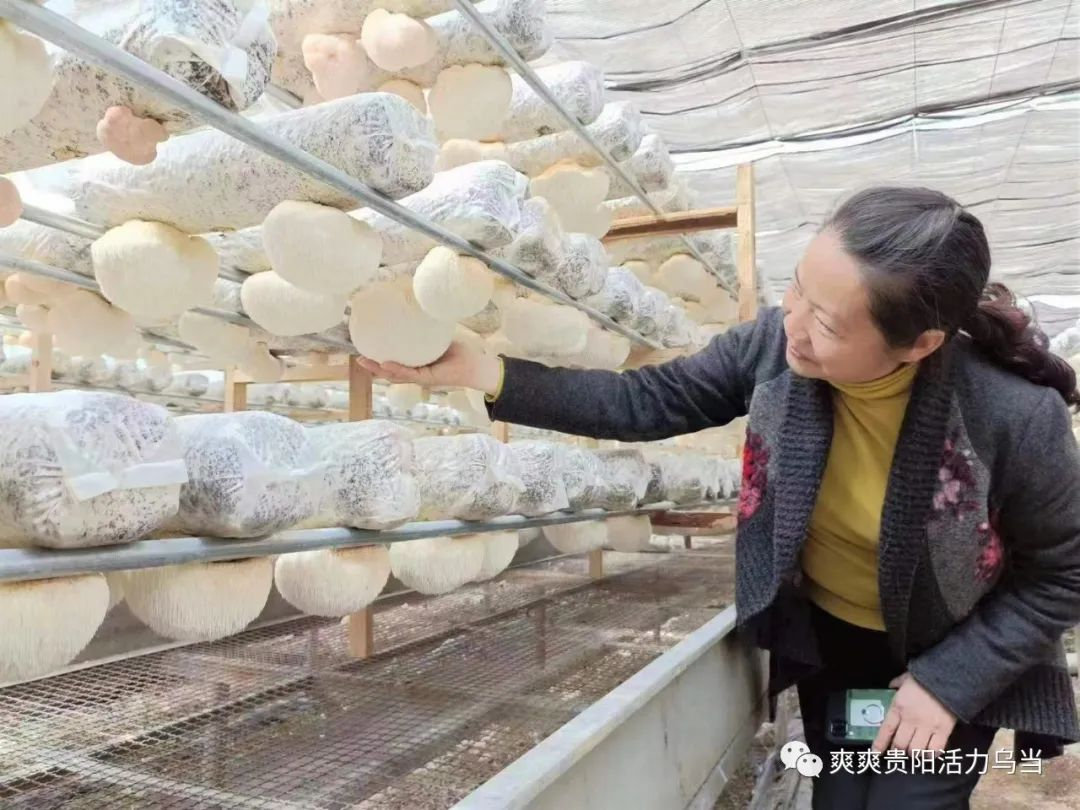Mushrooms boost rural development in Wudang

A worker checks the growth of mushrooms at a planting base owned by Guizhou Province Gunong Agriculture Co in Xinchang town of Wudang district, Guiyang. [Photo/WeChat account of Wudang district]
In recent years, Wudang district in Guiyang, capital of Southwest China's Guizhou province, has been making strong efforts to grow edible fungi as a way to drive rural development.
Wudang is currently home to 10 edible fungi enterprises, two cooperatives and one large-scale grower. As of May, the district has grown 13.39 million sticks of edible fungi, 62.9 percent of the annual target output value.
In the district's Xinchang town, Guo Min, the person in charge of a mushroom planting base belonging to Guizhou Province Gunong Agriculture Co, said that this year the base has planted 400,000 sticks of hericium erinaceus, with an average yield of 2.5 kilograms per stick, while 21 straw mushroom greenhouses covering an area of 8.5 mu (0.57 hectares) with a daily yield of 300 kilograms.
In order to produce delicious and pollution-free organic grass mushrooms, it is far from enough to rely on high-quality strains. Each greenhouse is equipped with professional temperature control equipment, humidification equipment and lighting equipment to provide a suitable growing environment for straw mushrooms.
The company has 18 employees and 125 seasonal workers, and has benefited 228 planting households.
Mushrooms create a net profit of 400,000 yuan ($56,160) annually for Xiaba town, while in Yangchang town the annual profit is 120 million yuan, with more than 60 surrounding farmers being employed, increasing the annual income of farmers by over 3.2 million yuan.
Next, Wudang plans to create an edible fungus industry complex integrating R&D, breeding, and intensive processing to further benefit locals and boost rural development.
Presented by China Daily.
黔ICP备05001922号-3
